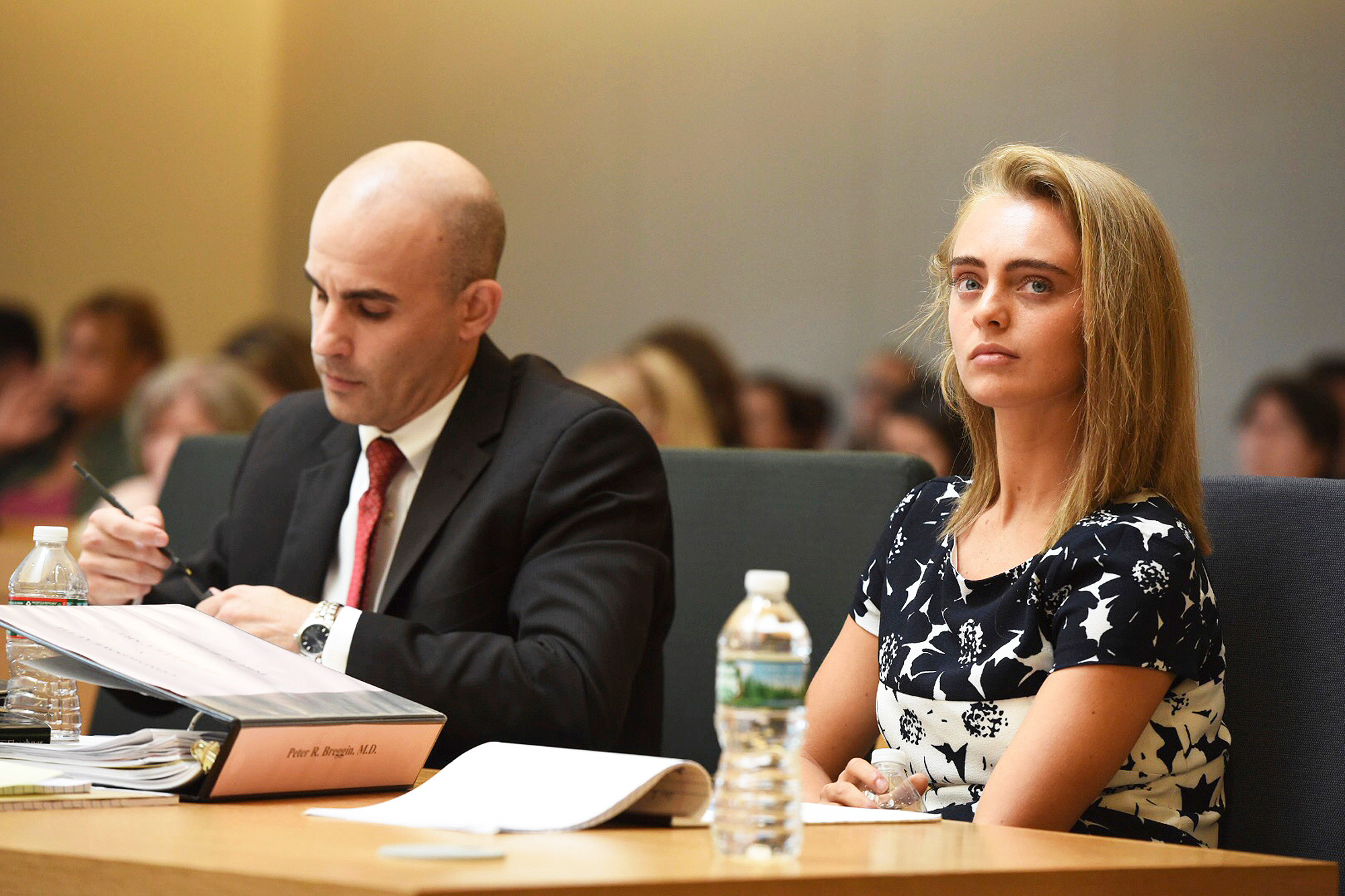A Massachusetts judge found Michelle Carter, 20, guilty of involuntary manslaughter in the 2014 death of her boyfriend, who poisoned himself by inhaling carbon monoxide in his pickup truck.
Roy’s body was found July 13, 2014, a day after his suicide in his parked truck in a Kmart parking lot in Fairhaven, nearly 40 miles from his home.
Prosecutors had said she sent Conrad Roy III, 18, numerous text messages urging him to commit suicide.
Bristol County Juvenile Court Judge Lawrence Moniz is explaining his decision in court before he announces how he’s ruled.
The case was built largely around Michelle Carter’s own words, in the form of hundreds of texts messages exchanged with a vulnerable young man who killed himself in July 2014 by inhaling carbon monoxide in his pickup truck.
The ruling could set legal precedent for whether it’s a crime to tell someone to commit suicide. It may also spur lawmakers to codify such behavior as criminal.
Friday’s ruling will be closely watched by legal experts.
“The wrinkle here is whether she coerced him or pressured him into doing something that he wasn’t in a position to rationally and autonomously decide to do because he was in such a depressive state,” said Daniel Medwed, professor of law and criminal justice at Northeastern University.
“It’s a square peg in a round hole,” he said. “It’s not a perfect fit for manslaughter.”
Based on court evidence, Carter had been alleged to have secretly nudged Roy toward suicide by sending him numerous text messages encouraging him to take his life, prosecutors said.
In closing arguments Tuesday, prosecutors said Carter berated her vulnerable boyfriend when he had second thoughts about killing himself, listened by phone to his last breaths and used his suicide to get from friends the attention that she desperately craved.
Carter went from offering “words of kindness and love” to aggressively encouraging Roy via text message to carry out longtime threats to commit suicide, Bristol Assistant District Attorney Katie Rayburn told the court.
“It got to the point that he was apologizing to her, … apologizing to her for not being dead yet,” Rayburn said in her closing argument.
Rayburn reminded the judge of text messages in which Carter encouraged Roy to get back in the truck, where he eventually died of carbon monoxide poisoning.
In text messages to a friend, she described hearing his finals words and breaths on the phone.
Carter’s attorney had argued that she was a troubled, delusional young woman who was “dragged” into the suicidal journey of Roy, who has long been intent on killing himself.
“The evidence actually established that Conrad Roy caused his own death by his physical actions and by his own thoughts,” defense attorney Joseph Cataldo said. “You’re dealing with an individual who wanted to take his own life….He dragged Michelle Carter into this.”
Carter was “overwhelmed” by Roy’s talk of suicide while at the same time dealing “with all of her baggage,” including the side effects of medication for depression, Cataldo said.
“It’s sad, it’s tragic,” he said. “It’s just not a homicide.”
Earlier in the trial, a psychiatrist testified that Carter was delusional after becoming “involuntarily intoxicated” by antidepressants.
She was “unable to form intent” after switching to a new prescription drug months before Roy’s suicide, and she even texted his phone for weeks after he died, the psychiatrist testified.
Her fate now rests with Bristol County Juvenile Court Judge Lawrence Moniz, who heard the case after Carter waived her right to a jury trial. She’s being tried in juvenile court because she was 17 at the time of the alleged crime.

